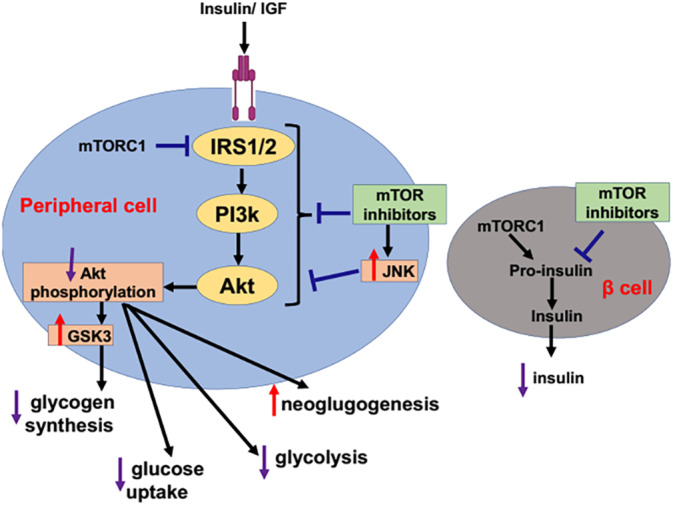FIGURE 5.

mTOR inhibitors and risk of type 2 diabetes (T2D): Mammalian target of rapamycin (mTOR) inhibitors reduce the conversion of proinsulin to insulin in the pancreatic β‐cells that increase risk of T2D development. In addition, mTOR inhibitors by increasing JNK signaling attenuate the activation of insulin receptor substrate 1/2 and P13k/Akt signaling activation leading to alteration of glucose metabolism. Decreasing Akt phosphorylation activates glycogen synthase kinase 3 (GSK3), which inhibits glycogen synthesis. Inhibition of Akt phosphorylation leads to activation of gluconeogenesis and inhibition of glycolysis and glucose uptake. IGF, Notice insulin‐like growth factor; IRS1/2, Insulin receptor substrates 1/2; mTOR, the mammalian target of rapamycin (mTOR); mTORC1, mammalian target of rapamycin complex1; PI3Ks, Phosphatidylinositol 3‐kinases; Akt, protein kinase B; GSK3, Glycogen synthase kinase‐3; JNK, Jun N‐terminal kinase.
